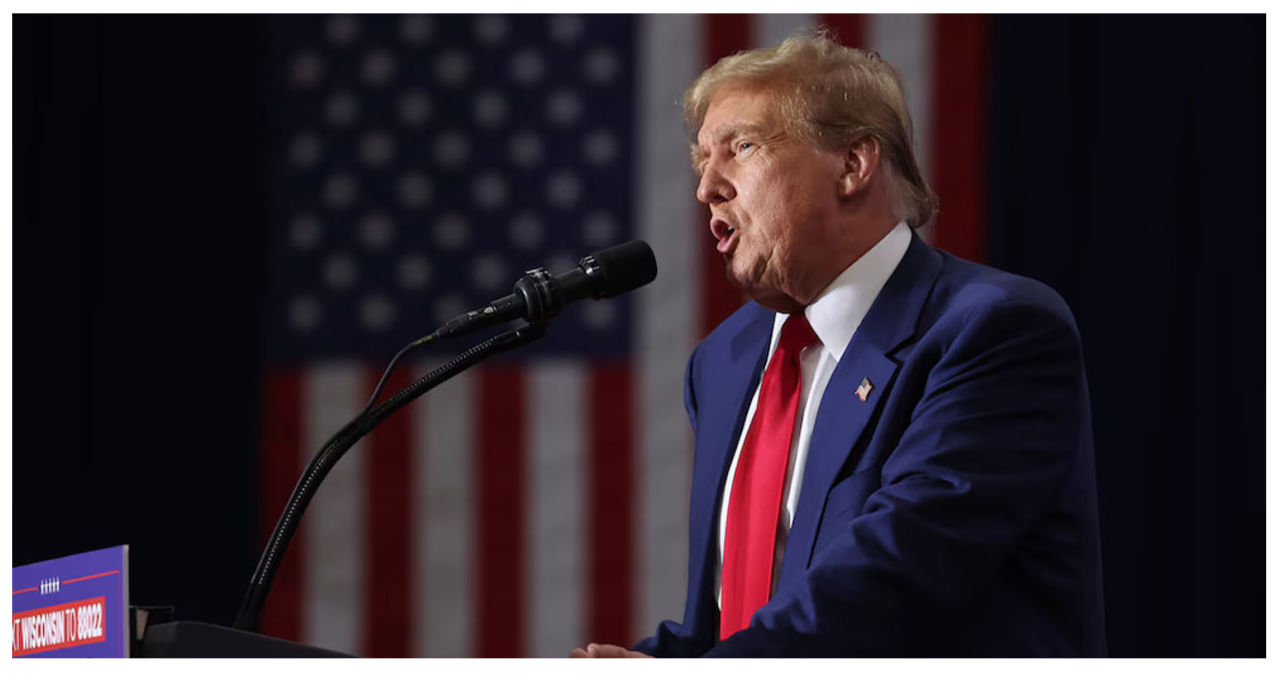Attorneys for the former president, Donald Trump, quietly resolved a dispute over the structure of a bond he secured as part of the massive judgment levied against him in the New York attorney general’s civil lawsuit. This development comes as all eyes remain focused on Trump’s ongoing criminal trial.
“Where has everyone gone?” Judge Arthur Engoron jokingly asked before beginning the hearing on Monday. This was the only mention made about the ongoing criminal proceedings happening just one block away at 100 Centre Street.
New York Attorney General Letitia James questioned the legitimacy of a $175 million bond submitted by the former president’s business. Had Judge Arthur Engoron sided with James, Trump might have faced the potential seizure of his prized assets by the state once again.
Attorneys representing the former president were able to avoid facing that outcome, at least for the time being, by agreeing to certain conditions put forth by the attorney general’s office.
James’ office raised concerns about the “awkward language” in the bond agreement, which could potentially enable the defendants or their surety to exchange the cash bond for a less secure form of collateral. This could include assets like mutual funds that have the potential to fluctuate in value.
According to Andrew Amer, a prosecutor with the attorney general’s office, the existence of this possibility is seen as a significant loophole that could easily be exploited.
Amer put forward five conditions that would address the state’s concerns. These conditions included a commitment to keep the bond account funded with cash and a requirement to give Knight Specialty Insurance Company sole control over the account.
After taking a 20-minute break, Chris Kise, the attorney representing Trump, agreed to the conditions proposed by the state. Kise had prepared two witnesses to present evidence on Monday, but a deal was reached between the parties before any testimony was given.
During the hearing, Kise emphasized the importance of progressing with the litigation process. He stated, “Our main objective is to move forward and proceed with the legal proceedings. The money involved in this case is not at risk and there is no room for confusion.”
Engoron agreed to the new terms, and Kise mentioned that both parties would officially document the agreement in the court’s records by Thursday, possibly even earlier.
In February, Trump embarked on his bond saga. Engoron, the judge, ruled that Trump and his co-defendants must pay $464 million in disgorgement and prejudgment interest. Engoron determined that Trump had been involved in a decade-long business fraud. Trump sought to postpone the payment, arguing that finding a surety willing to handle such a large bond amount was nearly impossible.
If Trump fails to pay the judgment on time, James is determined to take action by seizing his assets, including his iconic buildings.
In an interview with ABC News, James stated that if the individual lacks the necessary funds to settle the judgment, they will pursue legal avenues for judgment enforcement. They will request the judge to seize the person’s assets.
As the deadline approached for Trump to pay the judgment, the Appellate Division First Department of New York granted his last-minute request to decrease the amount of his bond. This allowed him to post a bond of $175 million.
After a few days, Trump and his co-defendants were able to secure a $175 million bond. The bond was backed by $175,304,075 that was held in a Charles Schwab brokerage account, which was under the control of the Donald J. Trump Revocable Trust.
According to a recent filing, Knight Specialty Insurance Company and Trump’s attorneys stated that KSIC is a highly regarded and well-funded insurer based in Delaware. They have a strong history of underwriting surety bonds and various types of insurance across the nation.
According to the filing, Knight has secured the bond with over $175 billion held in a brokerage account under their control. Additionally, Knight independently maintains assets worth over $539 million. The filing also reveals that the company has access to over $2 billion in assets through its parent company.
According to the filing, KSIC has given the Plaintiff judgment creditor the assurance that she can collect the specified amount if the award is upheld on appeal.
The New York Attorney General, in a recent filing, has raised concerns about the bond submitted by the defendants. According to the Attorney General, the defendants have not provided enough evidence to demonstrate that Knight is capable of managing this immense task. Additionally, the Attorney General argues that the bond lacks adequate collateralization.
According to the filing made by James, it is stated that Knight does not hold the sole authority to manage the funds in Trump’s brokerage account. This could pose a problem if the value of Trump’s assets in the account falls below $175 million. Additionally, James raised concerns regarding Knight’s business practices, arguing that they should disqualify the company from conducting business in New York.
According to the filing, KSIC is deemed unfit to serve as the surety under this standard due to federal authorities discovering instances where its management operated affiliated companies within KSIC’s holding company structure in violation of federal law. These violations occurred multiple times over the past few years.
During an interview with ABC News on April 4, Don Hankey, the chairman of Knight Specialty’s parent company, chose not to provide any comments regarding the attorney general’s filing.
“Our applications and bonds rarely face rejection. I believe they undergo thorough scrutiny, ensuring that every detail is meticulously checked and verified,” Hankey expressed. “The amount involved is substantial for anyone.”



